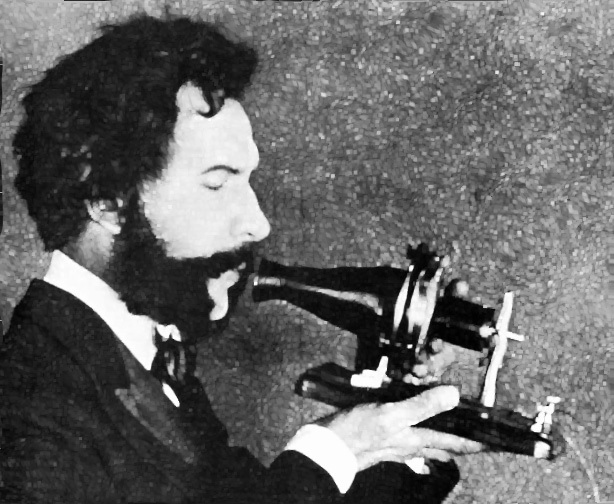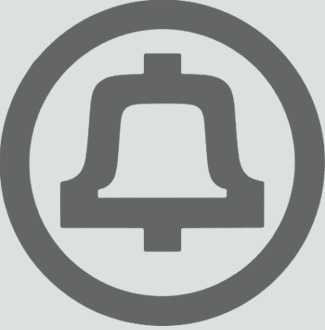Telecom Informer
by The Prophet
Hello, and greetings from the Central Office! It's election season. As I write this, the votes are being counted, but the Election Day robocalls are continuing to my most recent burner SIM. The polls close in another 14 minutes, but I guess that whoever is paying for them really thinks that people who are still undecided will somehow still vote. And whoever is calling and texting has absolutely no clue that the phone number was recently reassigned to me, and I am definitely not "Christina."
The number of both incoming and outgoing minutes that we process here in the Central Office is considerably lower than it was in previous years, but the number of complaints from subscribers to our customer service team about robocalls is up. In fact, it's one of the most common topics. We're not able to do anything about robocalls that don't originate on our network, but our tele-abuse team does follow-up on complaints about robocalls that we do originate. Often, as it turns out, the robocalls are legitimate and complaints result from a case of mistaken identity.
Robocalls represent a surprisingly large percentage of the calls we handle these days. We don't specialize in or market robocalling services, but we do provide customers who purchase automated dialer systems with the capability to use them on our network. "Why would you ever allow scammers, spammers, and other scumbags on your NXXs?" you may ask. Well, we don't - not knowingly, anyway. The majority of robocalls we handle are entirely legitimate: they're school districts informing parents that their kid didn't show up, medical and dental offices calling with appointment reminders, and pharmacies notifying people that their prescriptions are ready. And, of course, bill collectors - lots and lots of those, including our own delinquent accounts team!
While fully automated robocalls are illegal on the surface, there's a loophole: if they have an "established business relationship" under the Telephone Consumer Protection Act (TCPA), companies are allowed to hammer away at your phone with robocalls because you have "consented" to this (often by failing to opt out). And that's all well and good, except that the alleged "consent" goes with the person, not with the phone number. This, naturally, was red meat for class action attorneys who started suing big companies (especially collection agencies) for making robocalls to reassigned numbers. In turn, the Association of Credit and Collection Professionals sued the FCC, asking the courts for a solution. The courts obliged, giving birth to the Reassigned Numbers Database, adding another three letter acronym (RND) to the telecommunications mix.
It has taken about two years (which is practically lightning speed for any fundamental changes to telecommunications infrastructure), but we're finally getting pretty close to the RND launching. Like anything new, working out the details has been complicated with a lot of back-and-forth between the carriers, industry, and the FCC. Broadly, the Reassigned Numbers Database rulemaking required phone companies (like ours) to keep track of when phone numbers are disconnected. Starting on July 27th of this year, large carriers like us are required to maintain records when we permanently disconnect a number, and we are also required to wait for at least 45 days before reassigning them to someone else (smaller carriers have until January 27, 2021 to comply with these record-keeping requirements). For us, this isn't a problem; we already maintain records in multiple places.
The devil is in the details, which are still being worked out. The FCC won't run the database themselves; while they have created the requirements and specifications by which it will operate, the operator will be selected via competitive bid. You can expect the usual suspects like Neustar, Ericsson, etc. to bid. The FCC also takes a fairly hands-off approach to implementation details like the frequency and method of reporting, preferring to leave this to industry. The industry organization ATIS has specified that we'll need to push our reports to the database on the 15th of each month, but the specific details of how that will happen will come from the operator.
Naturally, that's a hassle for us; our IT folks need to figure out where to pull data from, how to aggregate it, and how to format it. Given our ancient IT systems, this is no small task! Additionally, there are some unanswered questions: is a number considered disconnected as of when we stop billing for it or when it's actually no longer in service? (There can sometimes be a lag.) This probably doesn't matter, because we hold all numbers at least 90 days prior to reassignment (and we're not reassigning very many numbers these days anyway), so we'll have some slack to account for the delays. Nevertheless, for wireless carriers (who reassign numbers much faster than we typically do), a few days can make a big difference.
Once it's operational, the database will provide subscribers with information about whether a phone number was disconnected and, if so, how long ago it was disconnected (or it'll alternatively provide a "no data" answer). That will allow subscribers such as collection agencies to have a better idea of whether or not they're calling a reassigned number, and maybe there will be fewer wrong number calls by these folks. However, it will do nothing to prevent robocalls in the first place, nobody will be required to use the database, and illegal robocallers (such as scammers impersonating government agencies) won't be subscribers because they don't care whether they're reaching the correct person. Overall, this will create a moderate amount of work for us, and is likely to have very little real impact. However, whoever ends up with the FCC contract to operate the database will make a lot of money, and collection agencies will likely be able to turn their subscription into an indemnity.
And with that, it's time to board up our windows. Our threat intelligence feed is warning of election-related violence, and corporate security has issued a directive. Granted, our windows are tiny, reinforced, and 30 feet up in the air, but I guess that's why we have a scissor lift. Try to stay safe and healthy, and if I survive the latest spike in our hopelessly uncontrolled COVID-19 pandemic, I'll be back in the winter with another column.
References

